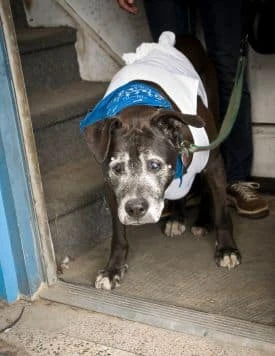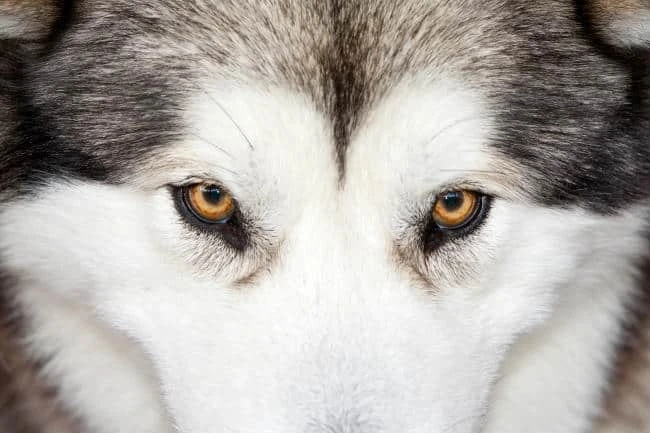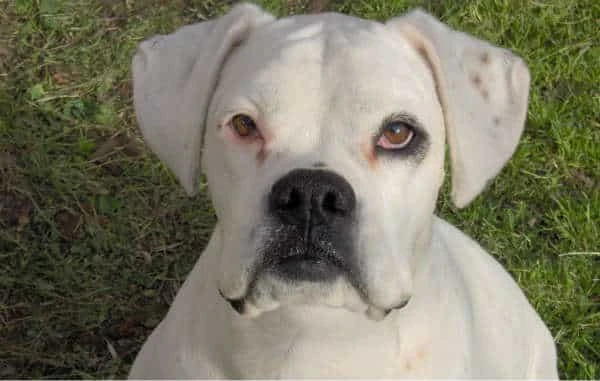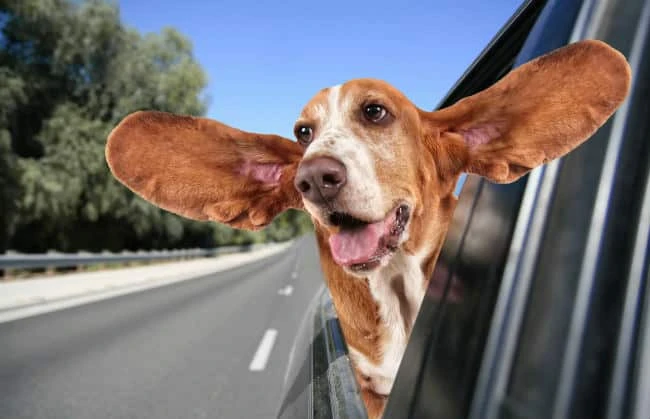Eye Problems in Dogs, Eyelash Mites, Causes of Glaucoma
Eye Problems in Dogs

Eye problems in dogs can be caused by a number of different illnesses and health conditions and if the underlying causes are not treated fast and effectively the problem may lead to blindness.
We have listed a collection of different causes and symptoms that may lead to eye problems in your beloved dog or puppy including eyelash mites, conjunctivitis, cataracts, ulcers, glaucoma, entropion and lens luxation….
So lets get started….
Eye Problems in Dogs
Below we have listed a combination of different treatments for eye problems in dogs and puppies. Although we have gone into some detail regarding the causes and symptoms of eye problems in dogs, if you are after more in depth information on the causes and symptoms etc then take a look at our section on puppy and dog eye discharge issues…
Conjunctivitis – The treatment for this condition will involve the infected eyes being washed and flushed out several times a day. Conjunctivitis is caused by an infection of the conjunctiva (the tissue covering the eyelid).A common symptom of this condition is itchy eyes that may produce discharge and even close partially.
If your dog or puppy has discharge that has become dry and crusty then you will need to use warm water to gently cleanse and remove the crusty discharge more easily.
Conjunctivitis and it’s symptoms are not transmitted to humans from dogs. If the condition has become severe or your vet feels that it is necessary then he/she may prescribe antibiotics to cure the infection.
Corneal Ulcers – The treatment for corneal ulcers in dogs and puppies will include medication to alleviate the pain. The vet may also prescribe a topical antibiotic to help and cure further infection. However, if the infection and/ulcer is really severe the vet may prescribe oral antibiotics to help reduce the inflammation.
Corneal ulcers in dogs comes in two types – Deep and Superficial. (If your dog has a deep ulcer then the eye may require suturing – the eye may also need conjunctival grafts.
Dogs are prone to corneal ulcers as they are very active outside. Ulcers can be caused by blades of grass (scraping the eye), trauma. injury, ingrowing eyelashes and even bacteria. You may notice that your dog starts squinting, pawing at the eye, have discharge and even lethargy and behavioral problems.
Lens Luxation – This is one of those eye problems in dogs that may need surgery. If surgery more intrusive surgery is not necessary than your vet may opt for laser surgery to treat the eye lens. If the eye problem is so severe then the lens may need to be removed and replaced with an artificial lens.
Lens luxation is caused by the ligaments (zonules) that hold the ligaments in place breaking. Depending on how the ligaments are attached it will lead to the lens either falling forward – known as anterior luxation or falling backwards known as posterior luxation.
This condition will normally start with the ligaments attached to the lens weakening and this is called subluxation.
Entropion – The treatment for this condition will involve surgery. The surgery for Entropion will involve the vet removing a small portion of skin so that it tightens the eyelid – this will take place when your dog is a fully grown adult as your dog’s face etc is still growing and changing.
Eye Entropion is one of those eye problems in dogs that is more common in certain breeds including…
- Shar Pei
- Mastiff
- Rottweiler
- Chow Chow
- Bloodhound
- Golden Retriever
This condition is either inherited or breed specific i.e. due to protruding eyes or other hereditary factors.
Eyelash Mites – This is caused by the Demodex parasite that lives in the hair follicles of mammals. The two species that are known to live on humans are the Demodex folliculorum and the Demodex Brevis. The Demodex Canis mite is found in dogs and causes mange
Canine Glaucoma – Treatment for this condition may involve your dog being prescribed specific drugs and medications that suppress the IOP levels in your dog. If dogs are unable to reduce the IOP levels in your dog then your vet may have to resort to surgery. Below are some of the drugs/medications that may be used to reduce the IOP levels in your dog including…
- Methazolamide
- Timolol Ophth Soln
- Trusopt Opthalmic Solution
- Pilocarpine 2% Opthalmic Solution
- Neuroprotection agents
- Miotics
- Aqueous Formation Suppressors
- Hyperosmotic agents
- Uveoscleral Outflow Enhancers
Eye problems in dogs like canine glaucoma can eventually lead to blindness.
Keratoconjunctivitis Sicca – This is also called dry eye syndrome. Eye problems in dogs that involve a lack of tears being produced by the tear duct may lead to the corneas becoming damaged. If the condition isn’t treated effectively then your dog may get ulcers in his eye.
Treatment for this condition may involve the vet prescribing a stimulant to stimulate the tear production. The vet may also prescribe eye drops and anti inflammatory medication.
Uveitis – The symptoms of this condition will include redness, pain, sensitivity to light and blurred vision. Blindness is also possible if not treated effectively – the main causes of the condition are bacterial, fungal and viral infections – this causes the interior of your dog’s eye to become inflamed.
Treatment for Uveitis may include…Glucocorticoid steroid eye drops such as….
- Dexamethasone
- Betamethasone
- Prednisolone
- Prednisone which is an oral steroid and may be prescribed by the vet.
Other Eye Problems in Dogs and Puppies include…
- Problems due to injury and trauma.
- Keratitis – this is when the cornea has become inflamed.
- Blepharitis- this is when the eyelids have become inflamed.
- Defects effecting the eyelids due to genetic defects and hereditary flaws.
- Distichiasis – this is when the eyelashes or cilia growing on the edge of the eye start to rub and irritate the cornea.
- Trichiasis – This when the eyelashes or Cilia that grow on the outer eyelids are too long and start irritating the eye.
All eye problems in dogs should be treated by your vet and it is important that you don’t try and treat the condition without medical advice first as you may make the problem worst.
Go from eye problems in dogs back to free vet advice or back to dog obedience training home-page





